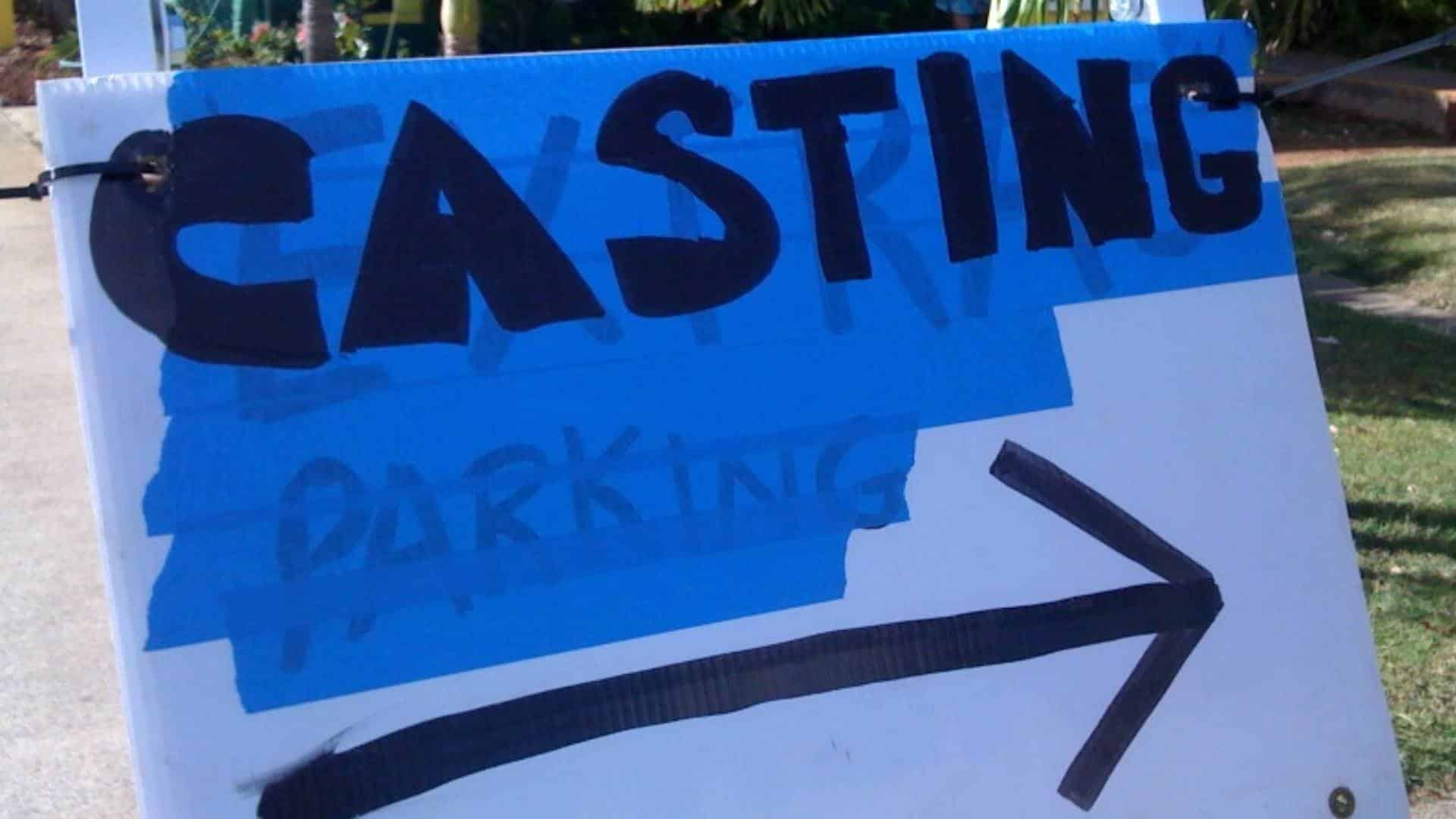Nepotism has a bad name because it gives an unfair advantage to those with connections. But isn’t it natural to get a helping hand from friends or family?

A sign for a casting call. (Credit: Ryan Kawailani Ozawa)
This article, by high school student Chloe Abel was produced out of News Decoder’s school partnership program. Chloe is a student at The Tatnall School, a News Decoder partner institution. Learn more about how News Decoder can work with your school.
Screenwriter Claire Cowperthwaite works hard to produce a great script. But in Hollywood, as elsewhere, that’s not always as important as connections.
“When you’re a screenwriter, you have to really pitch yourself,” Cowperthwaite said. “And it’s all about who you know. Like, they say, ‘Who reps you? Who’s your agent? Who’s your manager?’ And if you don’t have that, you’re not even in the room.”
Cowperthwaite has worked as a screenwriter for highly-acclaimed films such as “The Sixth Sense” and “Unbreakable” and the television series “30 Rock”. Even as she works to build the connections that matter, she will always be handicapped by a lack of one particular type of connection: family. The problem is the prevalence of nepotism — the practice among those with authority or influence of favoring relatives, friends or associates for jobs.
“It’s not just actors,” Cowperthwaite said. “If someone’s dad or mom is a big writer or producer, their script gets read first. They have an ‘in’ that most people just don’t. And that’s frustrating when you know your work is just as good, if not better.”
For some, it symbolizes a way of networking, a web of connections or a way to stay connected with family. For others, it represents injustice — an unfair advantage given to the privileged. But how deep does its influence run, and what are the real impacts on fairness and opportunity?
Resentment and low morale
Critics of nepotism argue that nepotism creates an unfair advantage for individuals born into privilege, denying opportunities for candidates of equal or greater talent.
In a survey of more than 6,000 professionals, the recruitment firm Robert Walters, which specializes in diversity, equity and inclusion (DEI) issues, nepotism was one of the most frequently cited concerns about workplace dynamics.
The report said that when nepotism becomes pervasive, it discourages merit-based advancement, resulting in resentment and low morale among employees who feel overlooked due to their lack of personal connections rather than skill or hard work.
Furthermore, nepotism, specifically in the entertainment industry, often leads to a lack of diversity and fresh talent.
Competing against names like Lily Rose Depp (daughter of Johnny Depp), Maude Apatow (daughter of Judd Apatow and Leslie Mann) and Maya Hawke (daughter of Uma Thurman and Ethan Hawke) can be difficult as a young actor attempting to establish a career.
Many aspiring actors, writers and producers find themselves unable to break into the industry despite their talent and dedication simply because they lack established connections. This can hinder creative innovation and create a cycle where only certain voices are consistently amplified.
“Nepo babies” are nothing new.
On the other hand, some argue that nepotism is a natural extension of networking, which has long been essential in career progression. There are historical examples that support this view.
In a February 2025 article in FT Magazine, writer Henry Oliver argued that patronage, a form of nepotism, was integral to Admiral Horatio Nelson’s success in the Napoleonic Wars.
Oliver argued that well-connected people often excel due to qualities like determination and skill, which were recognized and nurtured through personal connections. Modern examples also reflect this pattern. For instance, former Canadian Prime Minister Justin Trudeau, who recently stepped down, is the son of Prime Minister Pierre Trudeau. These cases suggest that nepotism, when paired with merit, can effectively identify and promote talent.
Dr. Clifford Anzilotti, Jr. is an example of someone who benefited from nepotism. An orthodontist, Anzilotti was able to work with his father. He argues that nepotism can provide valuable mentorship and preserve family businesses from being absorbed by corporate structures.
“I have benefited from nepotism in the fact that I went to work with my father and purchased his practice,” Anzilotti said. “So that’s something that probably wouldn’t have happened unless I was his son, and it allowed us to keep the business going.”
His experience working with his father highlights how nepotism can strengthen community ties and ensure that family values and business ethics are maintained throughout generations. Additionally, supporters suggest that nepotism can be viewed as a form of mentorship where skills and industry knowledge are passed down from one generation to the next. Here, nepotism is not solely about favoritism but also about nurturing talent and providing guidance that might otherwise be inaccessible.
A pathway to mentorship
If I had connections that could be used to my benefit, I would likely use them. It is a complex issue with no “right” answer, and one that forces us to think about privilege, fairness and how success is often shaped by more than just merit.
While nepotism undeniably provides some individuals with an unfair advantage, it also serves as a pathway for mentorship and preserving family-run businesses. As the discussion continues, industries will need to grapple with how to balance these competing perspectives to create fairer, more inclusive opportunities.
As an aspiring actress, I see both sides of the argument. On one hand, I understand that I may be limited to jobs in the entertainment industry because I don’t have the same connections as actors who are related to celebrities.
It can be discouraging to know that talent alone doesn’t always open doors. On the other hand, if I had access to those connections, I would most likely use them to my advantage.
Looking towards the future, if I end up having success in my career as an actress, and I myself have a daughter or son who wants to pursue a similar path, I would want them to succeed and use the connections that I worked hard to establish. Who wouldn’t?
Three questions to consider:
1. Does nepotism influence certain industries more than others?
2. Is it ever fair to give a job or opportunity to a family member over someone more qualified?
3. How might someone without connections break into a field where nepotism is common?

Chloe Abel is in her fourth year at The Tatnall School in Wilmington, Delaware in the United States. She plans to study theater at university. Chloe is passionate about writing poetry and reading in her free time. She also love movies and TV shows. Her favorite show is currently “The White Lotus”.
